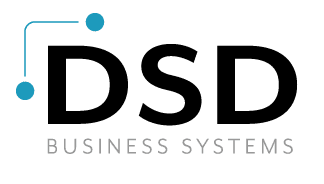3 Crucial Signs That You’ve Outgrown QuickBooks

Small and growing businesses typically like to keep things as simple as possible when starting out a business. They usually upgrade to more robust business systems as time progresses. QuickBooks is a fantastic accounting software package for small business owners. For the price, it’s sturdy and a wonderful tool for small organizations. However, if your company wants to grow, you’ll more than likely outpace QuickBooks’ functionality faster than you might expect.
Accounting professionals are responsible for far more than cost-expense reports and organizing basic financial transactions. The modern business world demands agility, always thinking three steps ahead. The ability to analyze and forecast with real time data is a vital part of any accounting professional’s responsibilities. While QuickBooks offers affordable, easy-to-use accounting software to small businesses, it may be time to migrate to a more robust financial service. 
Reporting Structure Changes
In your company’s early days, simple financial reports may be all you need. It’s relatively simple to keep track of how much is coming into the business and compare it to what’s going out in order to keep tabs on your financial state. However, as your enterprise grows, develops new products and services, creates new relationships with other businesses, and builds a list of clientele, you’ll find that the reports you need to generate are no longer so simple.
In addition to your company expenses, payroll, inventory, and revenue, you’ll need to start generating reports that forecast the business and the market in the coming months and years. Forecasting is an essential function of financial departments; you need to be able to provide your company leadership with valuable reports that convey a reasonable idea of what they can expect in the near future. This keeps your company prepared and flexible moving forward.
Organizational Growth
As your company grows, so will your responsibilities as a financial professional. You can’t afford to spend hours each day on basic data entry. You’re going to need more-robust software to provide financial insights for your company leadership’s decision-making processes. QuickBooks simply can’t compete with more advanced accounting software after long. As organizations grow, maintaining a complete audit trail of journal transactions including IDs of users who entered transitions will be important.
Many small business owners use QuickBooks to keep track of customer data as well as employee data. Redundant work and manual entry become issues as well. Unless your company leadership plans on remaining a small operation, you’re eventually going to run out of hours in the day to get all your necessary accounting done.
Inventory Management
It’s important to keep track of inventory numbers for your business. As a small organization, you’ll likely have less to record; however, as your business grows, so will the amount of inventory you buy and sell on a regular basis. QuickBooks Plus can track inventory and automatically adjust values and quantities, but it cannot handle fast changes and fine tuning. Managing inventory on your own not only saves you money, but removes the need to rely on a program that doesn’t know your company like you do.
Small and growing businesses are recognizing that basic accounting software like QuickBooks simply won’t cut it after a while and are exploring more comprehensive accounting and and business management software. The right Enterprise Resource Planning (ERP) software package can make a tremendous difference in your company’s financial department’s productivity, and it can influence the decision-making processes that move your company forward. Consider these points and evaluate whether ERP software is still a viable tool for you and your company.
 Written by Alex Padua, Strategic Account Manager at DSD Business Systems.
Written by Alex Padua, Strategic Account Manager at DSD Business Systems.








